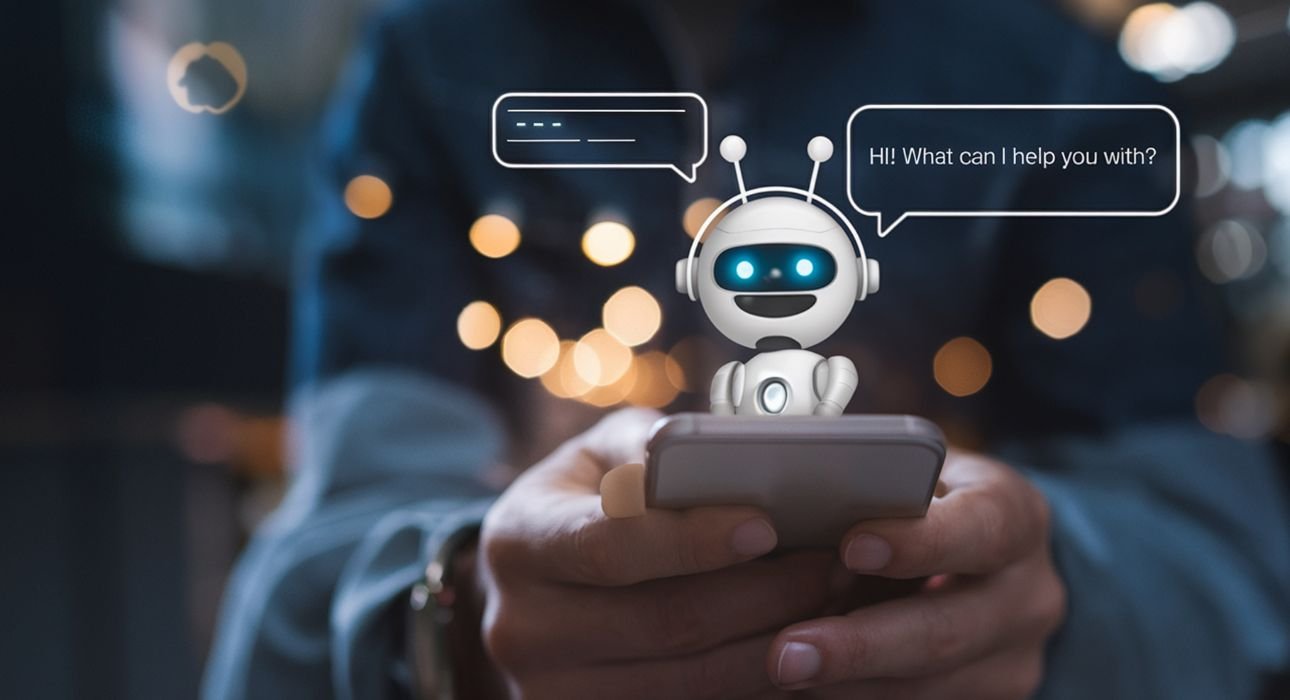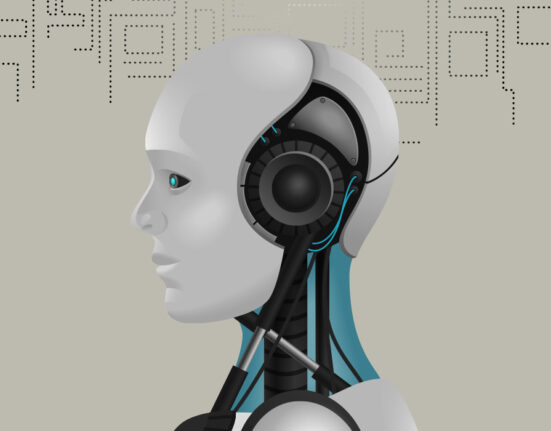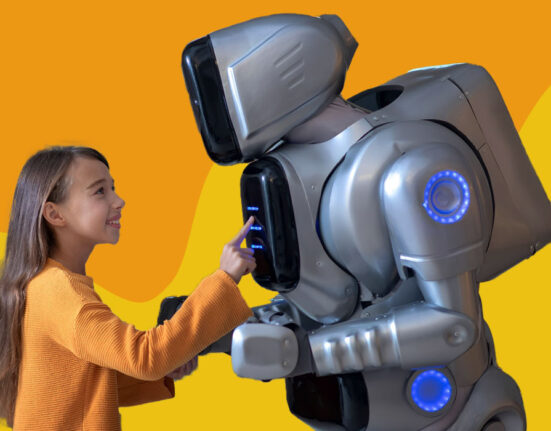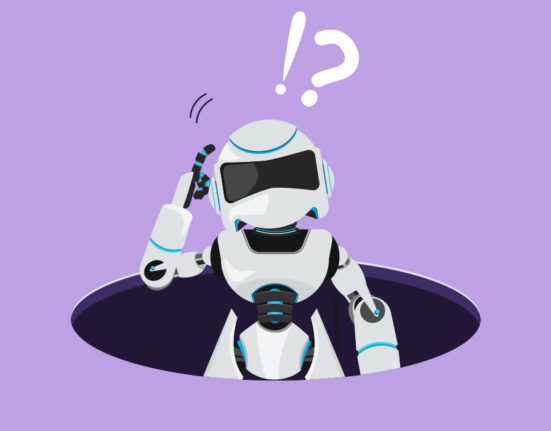Raj has recently made a very good friend. No matter what problem he has, his friend is always there with him, supporting him through thick and thin. Whether it be trying to solve his homework and assignments, asking for relationship advice, or a need for validation, his friend fulfils everything.
This friend is none other than an AI chatbot. And it is ever affirming of all his actions and decisions. It solves all his problems, so he doesn’t have to think of them himself. But Raj has slowly withdrawn from his surroundings. He doesn’t have any friends, and he doesn’t perform his duties. All he really believes in is what’s written on his screen. This is the reality of many people across the globe. But is the use of AI as good as most believe? Research shows the other side of the coin.
Read More: The Role of Chatbots in Mental Health Services: How Does It Impact People?
Neural and Cognitive Shifts: Key Concepts
1. Plasticity of the brain
Brain plasticity or Neuroplasticity, in basic terms, is the lifelong ability of the brain to change its connections or rewire itself (Jerzy Konorski, 1948). This is an essential function that helps one’s brain develop as it grows from an infant to an adult. Frequent technology use has been found to rewire the neural networks. A study shows changes in brain patterns and plasticity of people with developmental disabilities when exposed to such technology (Hyunyoung Lee et al., 2025).
2. Cognitive offloading
It is a technique of offloading information through the use of external aids in order to reduce the mental effort required for it. An example of this is putting a reminder. Research shows that we often forget things that can be easily looked up on the internet. This is called the “Google effect” (Sparrow, Liu, and Wegner, 2011), where the availability of knowledge at fingertips leads to a lack of memory retention by individuals (Gong & Yang, 2024). Students nowadays increasingly depend on AI for assignments and other tasks rather than engaging with the study materials themselves. This, in turn, affects our long-term memory (Grinschgl, Papenmeier, & Meyerho, 2021).
3. Metacognition
Metacognition refers to the awareness and regulation of thinking” (Winne, 2017). In simple terms, it is thinking about thinking. It helps improve one’s critical and analytical skills, decision-making and other cognitive thinking. AI has been found to impact how people perform cognitive tasks. Studies over the past few years show AI linked with reduced critical thinking skills (Lee, 2025 and (Zhai et al., 2024).
How it helps us
- Speed & Enhancement: One research study showed how the speed of those using AI assistants increased by 56% compared to those who did not (Peng et al., 2023). This shows that it increases our speed and enhances.
- Knowledge accessibility: AI has made the “creation, dissemination, and utilisation” of knowledge possible (Duan et al., 2019). AI can process large amounts of data and provide a summary in seconds. We are just one search away from knowing the history of the universe. It helps both individuals and organisations to not only store and manage knowledge, but also to apply it in thinking and decision-making processes (Jarrahi et al., 2023; Sanzogni et al., 2017).
- Problem solving: AI provides quick insights and performs complex calculations, which help in mitigating problems quickly and easily, which may have seemed difficult if done by ourselves (Said et al., 2025).
- Enhanced executive functions: AI takes up the workload of cognitive processing and related tasks. This helps in the reallocation of cognitive function into better execution of tasks. At the same time, AI has the capacity to emulate human behaviour and perform tasks. A recent study showed that inclusion of AI in schoolwork improves planning, decision making and overall execution of tasks (Klarin et al., 2024)
- Personalised learning: One of the most significantly impacted areas by AI is the field of education. Both learning and teaching have been reshaped by the use of adaptive technologies that cater to the particular needs of each student differently. This, in turn, shows better understanding and improved performance in academics (Pane et al., 2014).
How it affects us
1. Attention
Multiple studies over the years continue to show a decrease in attention with increased screen time. A meta-analysis found a correlation between the use of media and attention issues (Andersen et al., 2018). Another recent survey on adolescents found that compared to before the start of the study, the association of ADHD symptoms had increased over the course of 24 months with increased use of digital media (Ra et al., 2018). This may be due to repeated shifts and a lack of sustained attention.
Read More: Attention-Seeking Behaviour in Adults
2. On memory
AI has made access to knowledge a smooth and easy process. But this easy access to knowledge by external aids often results in the reduction of the use of our own cognitive processes and capacities. One of the direct impacts of this is seen in memory. Digital dementia is the term often used to explain this phenomenon (Spitzer, 2012). With the barrage of information readily available at hand, the ability to retain it has significantly decreased (Lin et al., 2015). Even something like using reminders for deadlines causes offloading and impacts memory (Sparrow et al., 2011).
Read More: How Emotional Distractions Impact Sustained Attention and Memory
3. Human decision bias
These are also called cognitive biases. Oftentimes, when feeding data into AI systems, the individual’s own ideas, beliefs and biases seep into them, which is further amplified and exploited by the AI to improve itself, as pointed out by professor Tali Sharot. It is also found that these AI biases further reach other individuals, impacting not only their decision making and preferences, but also their perception of people, communities and society at large. This was demonstrated by a study: On performing tasks with biased AI assistance, individuals often mimic those errors and biases even later on without AI involvement (Vicente & Mature, 2023).
4. Widening disparities
AI has made information readily available. But this information is not accessible to everyone. Those who have easy access to it have the opportunity to work more efficiently. However, those who don’t have access are left far behind. This results in increased disparities among the haves and have-nots.
5. Social isolation
While AI has opened a wide array for people to talk, ask and discuss things, in reality, it further reduces social connections and increases loneliness. A study by MIT Media Lab and OpenAI suggests that increased use of ChatGPT leads to increased social isolation. With how affirming AI is to every action of an individual, it is not only far away from genuine human interactions but is also harmful to their well-being.
How can we improve
1. Epistemic humility
This refers to a belief that one doesn’t, in fact, know everything about the world. That our knowledge is limited. In the age of AI, where it gives the easiest and fastest solutions to everything, our integrity is also questioned. Rather than claiming AI to be the source of all evil, we can try to work along with it to improve efficiency.
2. Emotional intelligence
Artificial intelligence can’t genuinely feel real emotions. Feelings like empathy, compassion, awareness and connections are difficult to replicate. These are uniquely human. Thus, developing one’s emotional intelligence can be increasingly helpful in coping.
3. Ethical choices
Most of the content generated by AI is a result of training from other human-made content. This is a major form of piracy occurring in the modern day and age. Creatives and artists’ works are being stolen for this purpose. An example of this is the Ghibli art that became popular a few months back. Thus, it is important to make ethical choices on what is okay and not okay to use.
Read More: AI-Generated Animations vs Studio Ghibli: Why Human Storytelling Still Matters
4. Critical thinking
The overreliance on AI for everything involving problem-solving often leads to the erosion of knowledge and creativity. It is important to understand that AI is not the ultimate solution. Critical thinking should be fostered in individuals to ensure thinking at a deeper level and self-analysis. This helps to make consumers actively participate in things like decision-making rather than passively taking in what’s given to them.
5. Strengthening Cognitive Skills
Rather than over-reliance on AI to solve every task, individuals should find more avenues to work without it. This could be an exercise as simple as writing an essay or creating a poster without taking help from AI. This ensures that proper thinking is used behind the task. Spending more and more time free from AI influence also ensures better attention and memory.
Conclusion
From searching up a food recipe to solving relationship problems, AI has become a central part of every individual’s life. However, AI is not just a helpdesk that simply provides answers to one’s solution. It is an intricate connection that has immense power and can shape and change how we think, notice, act or feel. Its effects can be seen in Neuroplasticity and cognitive offloading. It affects us in many ways. While in the short term, it enhances speed, reduces workload, and increases communication and accessibility to knowledge, it can harm just as much.
As explained by many researchers, it impairs one’s attention span, memory retention and recall, causes loneliness and social isolation and exacerbates the disparities between the haves and have-nots. These problems can, however, be solved by practising in improving cognitive skills, increasing emotional intelligence, valuing ethical choices, and critical thinking. While it is understood that today’s fast-paced life can’t be matched without AI, it is the use of ethical choices that makes a difference. Rather than dependency and reliance, taking it lightly and lessening its use can make a big difference.
FAQs
1. What is cognitive offloading?
This refers to the method of externalising information from our brain to reduce the mental effort involved in it. This causes our brain to forget readily available information.
2. How does AI affect us?
While AI can improve our speed, efficiency, and access to knowledge, studies show how it leads to a decline in attention span, memory, widens disparities, and Social isolation.
3. How can we cope in the AI age?
We can cope through increasing emotional intelligence, engaging in critical thinking, practising epistemic humility, strengthening our cognitive skills and also ethically using AI.
References +
your-brain-rewired-how-ai-is-altering-cognition-and-what-you-can-do-about-it https://psykobabble.medium.com/your-brain-rewired-how-ai-is-altering-cognition-and-what-you-can do-about-it-c32459b0f529
Small, G. W., Lee, J., Kaufman, A., Jalil, J., Siddarth, P., Gaddipati, H., Moody, T. D., & Bookheimer, S. Y. (2020). Brain health consequences of digital technology use. Dialogues in clinical neuroscience, 22(2), 179–187. https://doi.org/10.31887/DCNS.2020.22.2/gsmall
Savin, P. S., Rusu, G., Prelipcean, M., & Barbu, L. N. (2024). Cognitive Shifts: Exploring the Impact of AI on Generation Z and Millennials. Proceedings of the International Conference on Business Excellence, 18(1), 223–232. https://doi.org/10.2478/picbe-2024-0019
Shanmugasundaram, M., & Tamilarasu, A. (2023). The impact of digital technology, social media, and artificial intelligence on cognitive functions: A review. Frontiers in Cognition, 2. https://doi.org/10.3389/fcogn.2023.1203077













Leave feedback about this